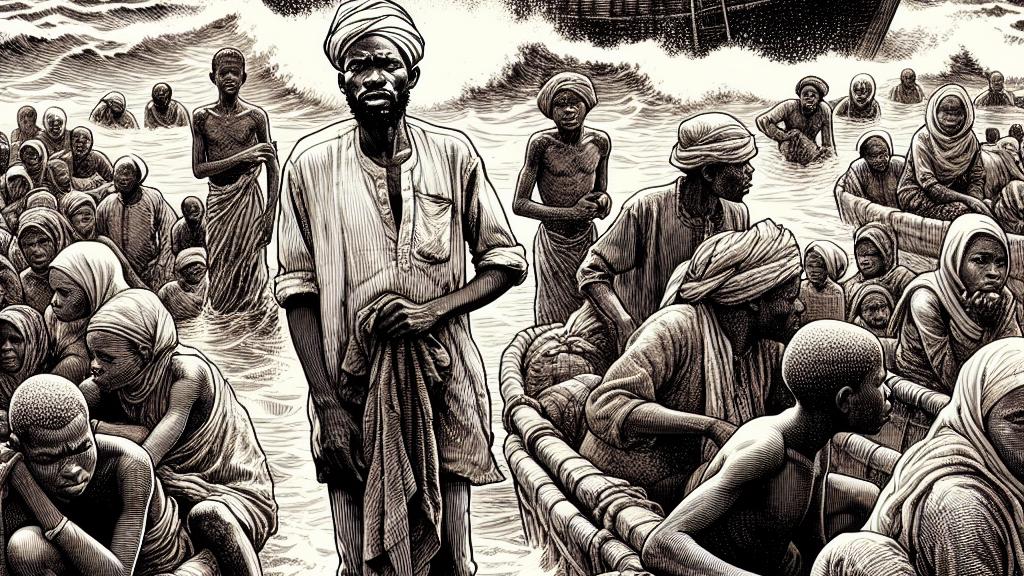Journey of Hope: The Perils of Migrating to the Canary Islands
Overview
- In search of a better future, countless Senegalese migrants take life-threatening risks to reach the Canary Islands.
- The harrowing journey across the Atlantic Ocean presents severe dangers, including dehydration, violent storms, and the risk of capsizing.
- Political unrest and overwhelming poverty propel many individuals to embark on this perilous quest for hope and opportunity in Europe.

The Long and Dangerous Voyage
In the heart of Senegal, a vibrant nation on the West African coast, farmers like Mouhamed Oualy harbor dreams of a brighter future. Oualy, despite never having set foot on a boat, is now preparing to brave a treacherous sea journey to the Canary Islands, a distance that stretches between 1,000 and 2,000 kilometers across the perilous Atlantic. He, along with countless others, finds himself crammed into overcrowded wooden pirogues, battling not only the unrelenting waves but also debilitating fear and uncertainty. Many of these brave souls suffer from dehydration and motion sickness, trapped in a nightmarish scenario where hope clashes with the brutal realities of the sea, as dozens of boats tragically vanish, leaving families in despair.
Desperate Times Lead to Risky Decisions
The recent surge of migrants embarking on this perilous journey can be traced to profound political turmoil in Senegal. Violent protests and civil unrest have left many feeling hopeless, driving them to seek refuge away from their homeland. Oualy, a devoted father, has borrowed money not only from friends but also has sacrificed everything he knows, venturing into the unknown in hopes of providing for his family. Imagine the anguish of leaving loved ones behind, driven only by the desperation of not being able to feed them. Like many others, he believes that risking his life at sea is the only chance for redemption, emphasizing the dire need for sustainable solutions to alleviate poverty and violence within the country.
A Call for Attention and Action
The rising tide of migrant arrivals at the Canary Islands has captured global attention, shining a light on this ongoing crisis and revealing the tragic realities faced by those seeking a better life. Local authorities are overwhelmed, and the grim statistic that a migrant may lose their life every 45 minutes serves as a chilling reminder of the stakes involved. Leaders are urging a coordinated international response to confront this humanitarian crisis effectively. As migration routes become increasingly lethal, there is an urgent need to cultivate a sense of global responsibility. This is not just about saving lives; it is about addressing the underlying issues that lead people to embark on such dangerous journeys. As they navigate these harrowing waters, we must listen to their stories and work together to foster hope, dignity, and a future worth fighting for.

Loading...